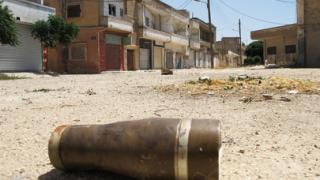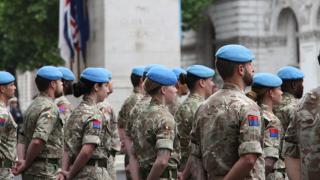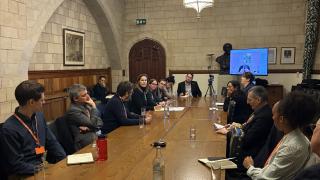
The horrific civil war in Syria has many causes and is being sustained by many factors.
It represents a consistent failure by all five permanent members of the UN Security Council, each of which share elements of the blame for what is taking place: for their historical roles in the politics of the Middle East, which laid the foundations for war; for irresponsible actions that have prolonged and exacerbated it; and for their failures of leadership and political imagination at crucial moments when a diplomatic solution might have been possible.
Nevertheless, UNA-UK feels that the actions of the Russian Federation with respect to East Aleppo represent a failure which is entirely different both in its magnitude and category. As Matthew Rycroft, the UK ambassador to the UN, said: “It is difficult to deny that Russia is partnering with the Syrian regime to carry out war crimes.”
Atrocity crimes took place during the fall of East Aleppo. The UN High Commissioner for Human Rights deemed them "crimes of historic proportions". The capture of the city is unlikely to bring those crimes to an end. Indeed, the High Commissioner for Human Rights yesterday warned that they may now spread to other cities across Syria. Russia’s involvement in these crimes should stain its reputation.
Russia is a major global power and a permanent member of the UN Security Council. It has not always been treated as such by Western powers, and has a right to feel aggrieved at a perceived lack of respect by the US and UK in particular. Allegations of hypocrisy regarding those countries’ own conduct in the region are not without merit. But none of this excuses Russia’s current conduct.
UNA-UK would like to see the British Prime Minister and Foreign Minister further denounce Russia’s actions, and do so in a manner that is unequivocal but that shows awareness of the historical context and Russia’s position as a major power.
At some point there will be a judicial reckoning for what took place in Syria, but Aleppo must not be used as a bargaining chip between East and West – preventing ongoing atrocities is a far more urgent priority. The international community has the tools to do so: in 2005 the countries of the world pooled the bitter experience of previous failures to prevent atrocity crimes and established the doctrine of “Responsibility to Protect” (R2P) as the mechanism by which ‘never again’ could become more than an empty slogan.
It is time, indeed it is long overdue, that those tools are put into action: states must uphold their responsibilities to protect civilians from atrocity crimes. If they are not able to do so then the international community must help them. If they are not willing to do so then the international community must use peaceful means to encourage action. And if this is unsuccessful, then more coercive means must come into play.
Nevertheless, we must recognise that the current atrocities taking place in Syria must be solved multilaterally and that any attempt at unilateral or bilateral action, however well intentioned, will be highly likely not only to fail, but to prolong the war and increase the suffering of Syria’s citizens.
It is understandable that the failure of the Security Council on Syria has given renewed urgency to conversations about reform of the Council. Reform is much needed, particularly when it comes to the use of the veto in cases regarding atrocity crimes. But it would be a mistake to think that a process or mechanism that circumvents the world’s global powers could have a chance of implementing a sustainable peace. For better or worse, the war in Syria is only likely to come to a permanent end as part of a process to which Russia is amenable. Indeed, the lesson of history is that a lasting peace can only be achieved through the engagement of all major powers, regional stakeholders and parties on the ground.
UNA-UK reiterates its call for all sides of the conflict to enter into negotiations to find a peaceful end to the war. We hope that the new UN Secretary-General can use his convening power to make that outcome more likely. Even so, we recognise that a negotiated end to hostilities remains a remote prospect at this stage, but the ending of the suffering of the Syrian people by any other means seems more remote and unlikely still.
As a consequence, the humanitarian work of the UN remains of paramount importance. We urge the international community to pledge support for the UN and UN agencies in the vital work they do to provide humanitarian support to the people of Syria and to displaced Syrians the world over.
Image: A shell lies in a Syrian street, UN Photo/David Manyua






